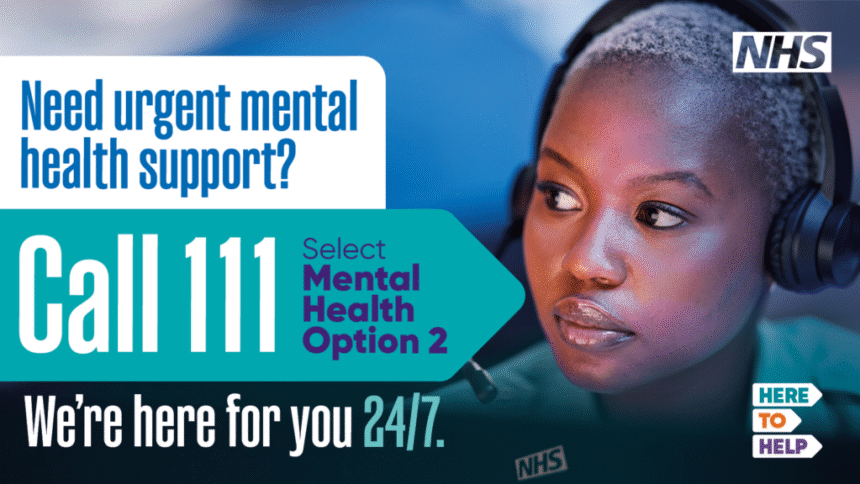Mental health emergencies can be terrifying, but fast help is available. In the UK, the National Health Service (NHS) and private mental health providers offer critical support for individuals experiencing psychiatric crises—even without prior treatment history.
In this comprehensive guide, you’ll learn how to:
-
Get emergency mental health treatment in the UK
-
Use NHS crisis teams, A&E units, and 999 services
-
Understand the role of sectioning under the Mental Health Act
-
Discover your rights and treatment options
-
Access aftercare and support services
ALSO READ>> How to Get Treated at Bethlem Royal Hospital (With or Without Insurance)
Truck Driver Jobs in USA with Visa Sponsorship | Apply in 2025
MDC Canada Exposed: The Truth About Working in Canada You’re Not Being Told
???? Why Emergency Mental Health Access Matters in 2025
As of 2025, the UK, Canada, and the USA are witnessing alarming spikes in mental health-related emergencies. Top-searched terms this year include
| UK | Canada | USA |
|---|---|---|
| NHS mental health support | free therapy in Canada | emergency psychiatric help |
| anxiety & panic attacks | suicide crisis line | PTSD treatment near me |
| mental health A&E units | walk-in mental health support | urgent therapy covered by insurance |
???? When Is It a Mental Health Emergency?
Recognize the signs early. You or someone you love may need urgent care if they:
-
Are feeling suicidal or have made an attempt
-
Are hearing voices or experiencing psychosis
-
Are severely depressed and unable to function
-
Are showing violent or erratic behavior
-
Cannot safely be left alone
???? Who to Contact First
1. NHS 111—Option 2
Call 111, then press 2 for mental health. You’ll be connected to a 24/7 crisis team in your area.
2. Call 999 (Emergency Only)
Use 999 if there’s an immediate risk of harm to yourself or others. Emergency services can transport you to the hospital and initiate psychiatric care.
3. Go to A&E (Accident & Emergency)
Visit the nearest A&E and inform staff you’re experiencing a mental health crisis. Many UK hospitals now have dedicated psychiatric A&E units as of 2025.
???? What Are Mental Health A&E Units?
In 2025, the NHS has launched specialized mental health A&E hubs across England, designed to
-
Reduce waiting times
-
Provide rapid access to psychiatrists
-
Handle severe anxiety, depression, suicidal ideation, or psychosis
These units are staffed with
-
Psychiatric nurses
-
Crisis resolution teams (CRTs)
-
Approved Mental Health Professionals (AMHPs)
???? The Assessment Process: What to Expect
After arriving at A&E or contacting NHS 111:
Step 1: Initial Screening
You’ll be assessed for immediate danger, medical needs, or the need for hospitalization.
Step 2: Mental Health Evaluation
A specialist team will determine
-
Your risk level
-
History of mental illness (if any)
-
Whether informal or compulsory admission is needed
⚖️ Voluntary vs. Compulsory Admission
✅ Voluntary Admission (Informal)
-
You agree to be treated in the hospital.
-
You can usually leave when you choose (subject to medical advice).
⚠️ Compulsory Admission (Being Sectioned)
Under the Mental Health Act (1983):
-
If you’re deemed a danger to yourself or others, you may be “sectioned.”
-
Two doctors and one AMHP must agree
-
Most common: Section 2 (28 days) or Section 3 (6 months)
Important: Sectioning doesn’t mean you’re a criminal. It’s a legal framework for urgent care and safety.
HOT JOBS>>
Remote Nursing Jobs in Canada: Opportunities, Roles, and Insights
Free Visa – 700 Meat Cutters and Welders Needed in Canada: Apply Now
$100K US Visa Sponsorship Opportunities for Foreigners in 2025
???? How Much Does Emergency Mental Health Treatment Cost?
If you’re a UK resident:
-
NHS treatment is free, including emergency mental health admissions.
-
Prescription medications may also be covered, especially if you’re on benefits or the NHS Low-Income Scheme.
If you’re from overseas:
-
You may need to pay for emergency services unless covered by
-
International travel insurance
-
Reciprocal healthcare agreements
-
Private medical insurance
-
???? What to Bring (If You Can)
-
NHS number (if available)
-
ID and proof of address
-
List of current medications
-
GP or mental health history
-
A support person or carer, if possible
???? Resources & Helplines
| Organisation | Contact |
|---|---|
| Samaritans | Call 116 123 (UK—free, 24/7) |
| Shout Crisis Text Line | Text SHOUT to 85258 |
| CALM (Male-focused) | 0800 58 58 58 |
| Mind UK | www.mind.org.uk |
| NHS Urgent Mental Health Support | www.nhs.uk/service-search/mental-health |
???? What Happens After Discharge?
You may be referred to:
-
Community Mental Health Teams (CMHTs)
-
Outpatient therapy or counselling
-
Follow-up psychiatric evaluations
-
Medication reviews
-
Social care or housing support
Ask for a care plan before leaving. It should include medication, contacts, warning signs, and follow-up appointments.
???? Final Checklist: What To Do in a Mental Health Crisis (UK)
✅ Call 111, option 2
✅ Call 999 if urgent
✅ Visit A&E and state mental health emergency
✅ Request to see the crisis team
✅ Ask about sectioning or voluntary admission
✅ Plan your aftercare support
Be the first to get new scholarships, job updates, inspiring Fazza poems, lifestyle stories, and more — straight to your inbox.


